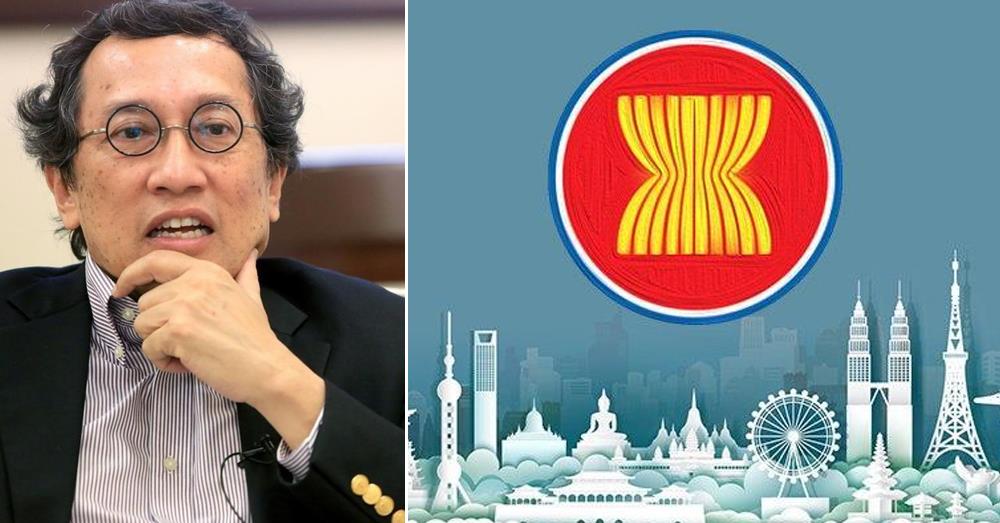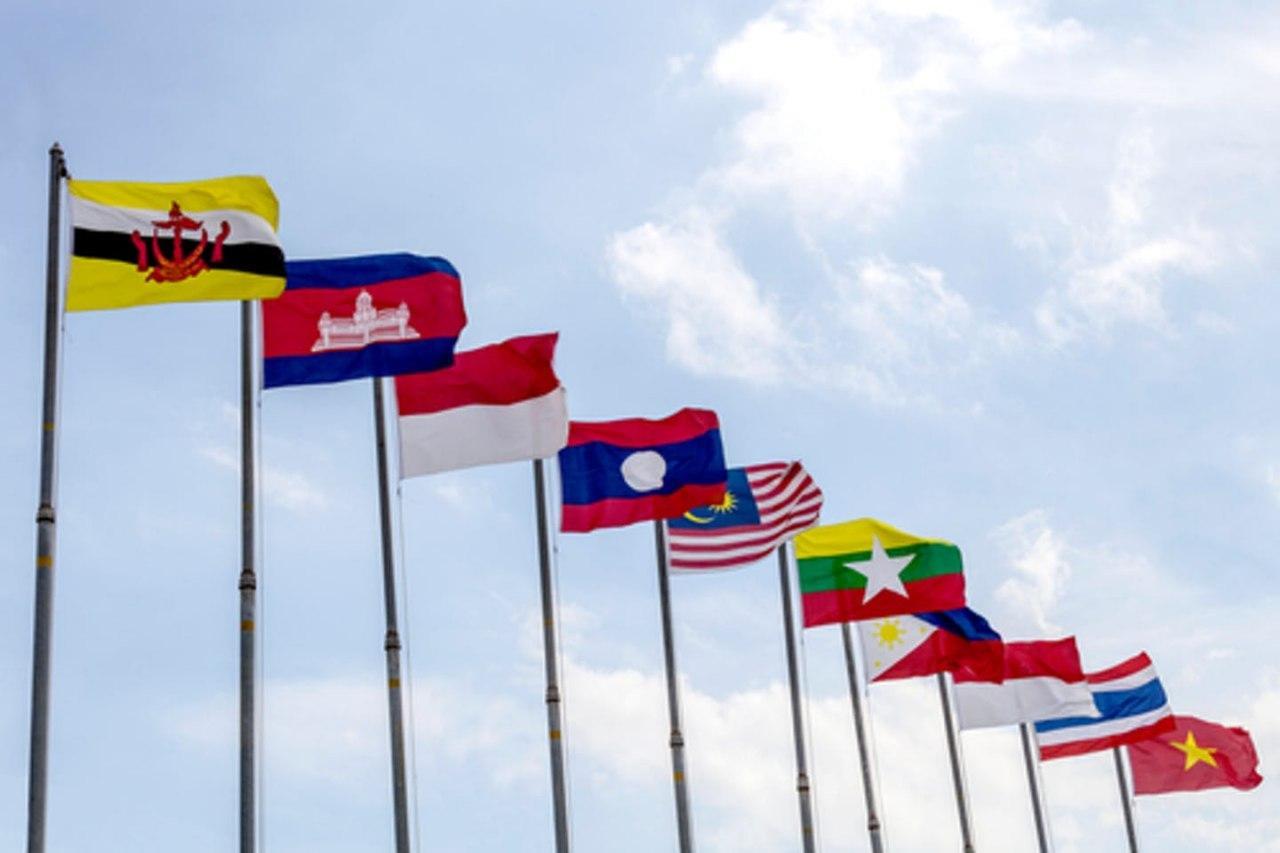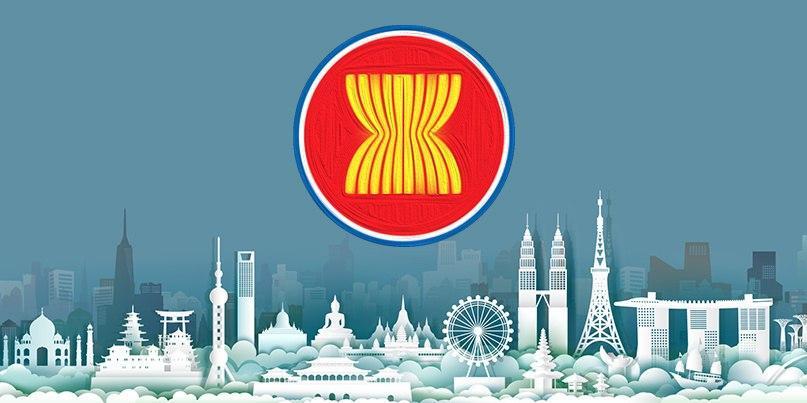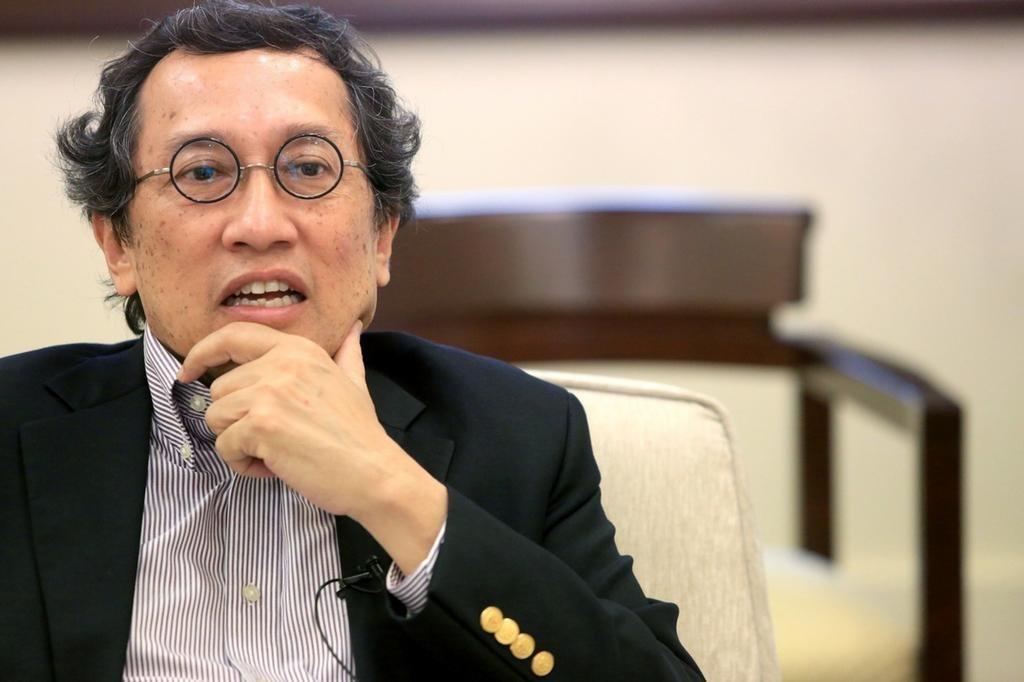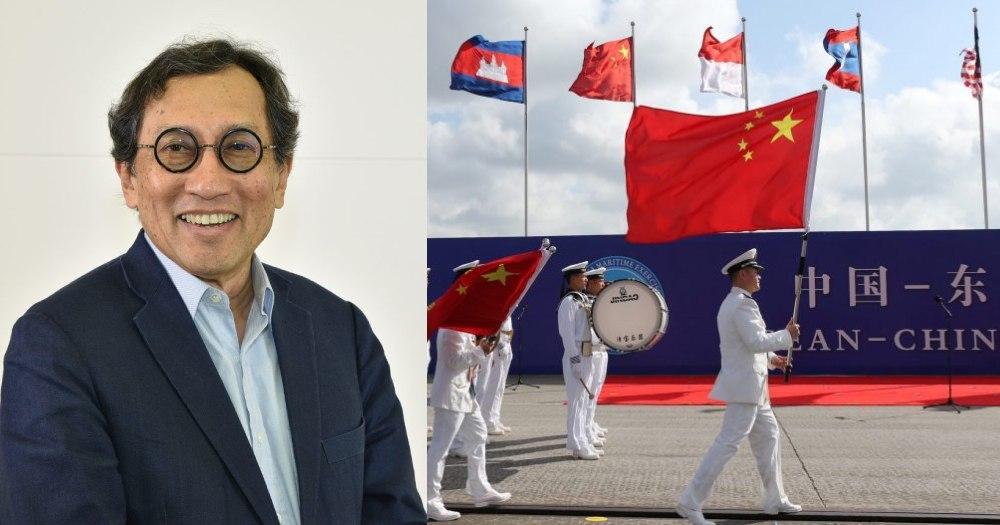Phnom Penh (FN), Oct. 27 – Below is the open letter entitled “A Singaporean Wolf Warrior Is Destroying ASEAN Unity and Centrality,” dated 27 October 2020.
We are a group of retired and active Cambodian diplomats. We are writing this open letter here as offended Cambodian and ASEAN citizens in response to Bihalari Kausikan’s article published on the Mothership on 24 October 2020. In fact, reading about the author’s long career diplomat background, we were expecting a more intellectually rigorous piece but instead we find it a bit sensationalist, inconsistent and at times contradictory. But what we find repulsive is his arrogant and condescending tone, not just about our country, Cambodia, and Lao PDR, but even towards our current ASEAN Leaders, a behavior unbecoming of a former diplomat. Throughout the article, he made a barrage of misleading and flawed claims that are intellectually deceitful and normatively detrimental to the region, especially ASEAN. That said, we perceive some nostalgia of his good old days, a sort of cry for attention, a fear of being forgotten.
Anyhow, back to the substance. First, it is absurd and dangerous to argue that “ASEAN might have to cut Cambodia and Laos if they make wrong choices”.
This is not the first time that this Singaporean ‘wolf warrior’ proposed to dismiss Cambodia and Laos from ASEAN. On 23 July 2016, he wrote on his Facebook that “I wish we could expel Cambodia but we cannot. So the next best thing would be to organize a special foreign minister’s meeting and use that meeting to orchestrate criticism of Cambodia who, hopefully, would get the message and quit. If Laos should follow, I would not weep. But I doubt anyone would have the stomach for this.”
It is surprising that this former diplomat, lest he is senile and forgetful, disregards the basic principles that are enshrined in the ASEAN Charter and the Treaty of Amity and Cooperation in Southeast Asia – widely known as the ASEAN Way. By and large, the ASEAN Way spells out guiding principles to govern the inter-state relations in Southeast Asia and beyond, including mutual respect for equal sovereignty, non-interference in domestic affairs of one another and consensus-based decision making. These organizing principles have served ASEAN very well for the past five decades despite the fact that the region has faced many challenging moments, some even more daunting than the present times. It is dangerous, irresponsible, even suicidal, to throw away those principles for the simple and obvious reason that ASEAN unity and centrality will be shaken to the core.
Moreover, it is illogical and contradictory for Bilahari to postulate that “we are an inter-state and not supra-national organization” while at the same time he promotes the idea that some ASEAN Member States should be expelled from the regional grouping. Somehow, he seems to forget or pretends to forget that ASEAN has never been designed to retain a supra-national authority to dictate the economic, political, strategic direction of its member states.
Bilahari’s inconsistencies go wilder here. He argues that states must pursue their national interest. Of course, Cambodia’s national interest, as defined by the elected leadership of the country, is to defend national sovereignty, ensure economic and social development, and produce a foreign policy that meets its national needs, in line with the regional needs of ASEAN and other regional players. When he argues that dropping Cambodia and Laos to preserve the other eight members, he is himself intellectually lazy by assuming that the other eight represent a regional consensus. But do they? A consensus that somehow excludes Cambodia and Laos? This consensus is a weak consensus, as he himself implies, precisely because the eight members also have to pay attention to their national interest, which are not identical one with the other. The fact of the matter is that all ASEAN members are leery of the big power competition now underway in the region. In this weak consensus Cambodia has a rightful place. For what is Cambodia trying to do? Safeguarding its national sovereignty means defending its rights to make its own decisions in a number of areas.
It is worth mentioning that the ISEAS-Yusof Ishak Institute is the main platform for some Wolf Warriors to promote a distorting narrative that Cambodia is China’s vassal state. The Institute often organizes events and write articles to attack Cambodia. Recently, in late September 2020, when the Pentagon asserted that Beijing had likely considered locations for military logistics facilities in five Southeast Asian countries, Ian Storey, a senior fellow at the Yusof Ishak Institute, drew a simplistic conclusion that “such willingness [to host a Chinese base] appears to be in short supply, except in the case of Cambodia.” This is nothing but a coordinated attack by the so-called independent think-tank to advance the ‘Cambodian proxy’ theory.
But which are the attributes of a proxy? Is the groundless rumour that Cambodia might host a Chinese military base constitutes a proxy? Ridiculously, those ‘Wolf Warriors’ and so-called think-tankers conveniently ignore the very fact that some regional countries, including Singapore, here we meant no disrespect to Singapore as a sovereign state but we raise it only for the sake of argument, have provided military basing or leasing rights to external powers for far too long. This begs the questions: (1) are these countries proxies?; (2) are the American treaty allies in the region proxies too?; and (3) between the rumour that Cambodia might provide port facilities to a foreign power and the existing basing rights that Singapore has provided to external powers, which case is actually tantamount to the insecurity and the deterioration of strategic trust in the region? So the moral of the story is this: One must be careful when pointing a finger at someone, because there are three other fingers that are pointing back at oneself.
Bilahari and ISEAS-Yusof Ishak Institute should stop pretending as if they have the monopoly of knowledge and wisdom. Other countries in ASEAN, including Cambodia, do have a number of think tanks that are populated by former diplomats as well, but we are not hypocritical to hide behind the so-called “veil” of independency to insult its fellow ASEAN country members and jeopardize ASEAN unity and centrality. By the way, speaking of agency, which is the whole gist of Bilahari’s paper, one wonders for which power is he and ISEAS-Yusof Ishak Institute acting as “agent” for?
The idea that “Cambodia and Laos teetering precariously on the edge of making a parallel mistake as that which led to very tragic results for their countries in the late 1960s and 1970s” is beyond one’s comprehension and thus insulting.
Let allow the Lao PDR to speak for themselves about their determination to maintain neutrality. For Cambodia, neutrality and non-alignment have been and will remain the fundamental principles of its foreign policy as enshrined in the Kingdom’s constitution. Cambodia has never taken for granted neutrality and non-alignment because its history vividly and constantly reminds the Cambodians from all walks of life that the abandonment of these principles, particularly by the Lon Nol regime in 1970, led Cambodia into civil war and the worst atrocity of the 20th century.
Ironically, Bilahari and his fellows of independent think tankers, while preaching Cambodia to preserve a ‘true neutrality’, have advocated shamelessly for a more active engagement by external powers in the Mekong sub-region to counter-balance China’s influence. They have also called upon the Mekong countries to join the Anti-Chinese bloc. Is it a call for the neutrality of the Mekong? Or is it an attempt to once again turn the Mekong into the battleground of great power politics?
Cambodia, along with countries in the Mekong, does not wish to take side. We only wish to live in peace and stability whereby our economic development and social progress can be ensured. We only wish to contribute constructively to the ASEAN Community building process. Please spare us from the great power rivalry. Please stop locking in a zero-sum mentality that has generated countless tragedies in the history of mankind.
In sum, we truly doubt there is anyone in ASEAN, including the eight presumably "worthy" members, who is talking about dropping Cambodia and Laos. Instead, as exemplified in the current COVID-19 crisis, all ten members are doubling down their efforts to pursue the principles of unity in diversity-- diverse policies that fit the national interest of each member, and unity in the principles embodied the various documents and policies of ASEAN. Being in the midst of great-power competition is not a novel experience for ASEAN, as Bilahari rightly said, but a true diplomat, current or former, should use his wits, his skills and his decades long of experiences and wisdom to put out the fire. Unless he is forgetful, to do so one pours water onto the fire and not oil. As fervent supporters of ASEAN, we believe Bilahari, as a retired diplomat, should stay retired for real. As nostalgic as he is of the past, then perhaps he should try singing the Blues while watching the sunset. ASEAN needs new voice of confidence and not voice of dissension.
=FRESH NEWS
